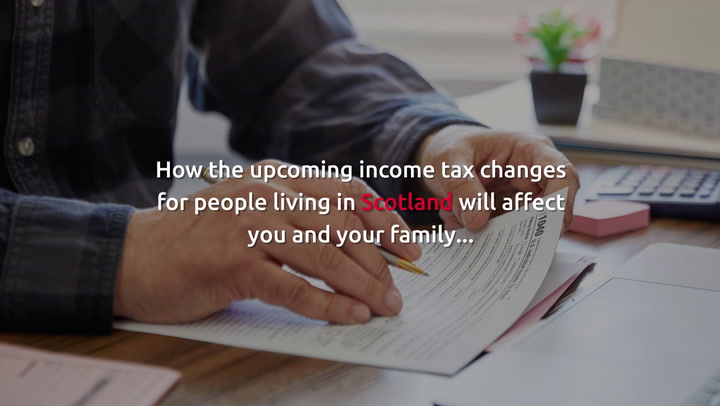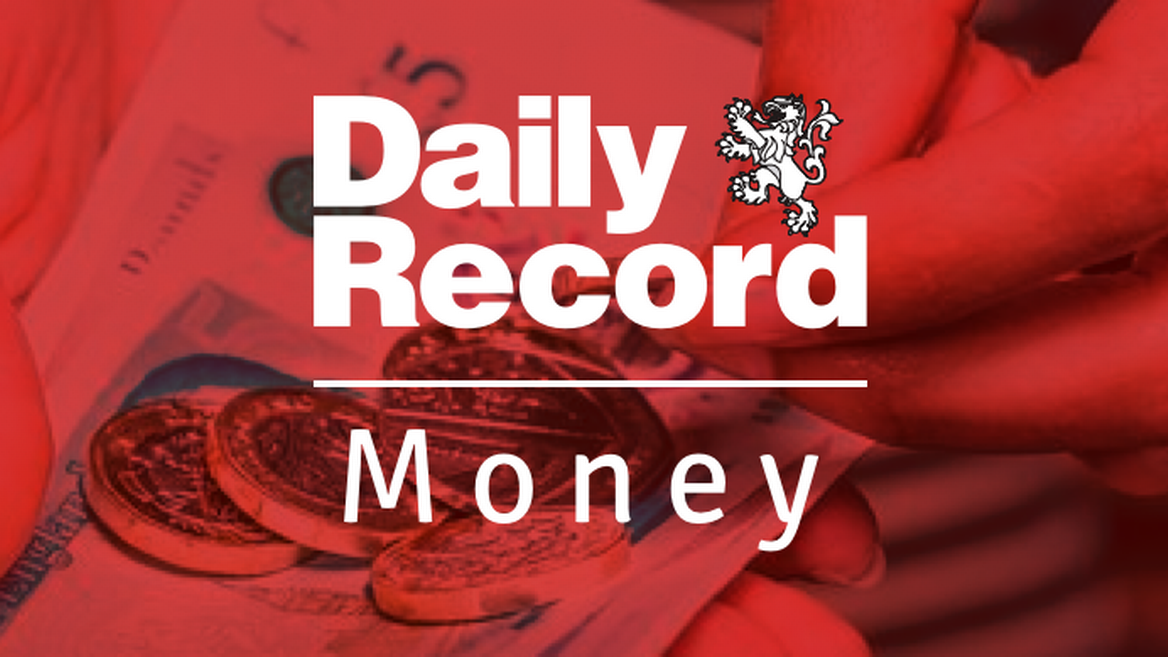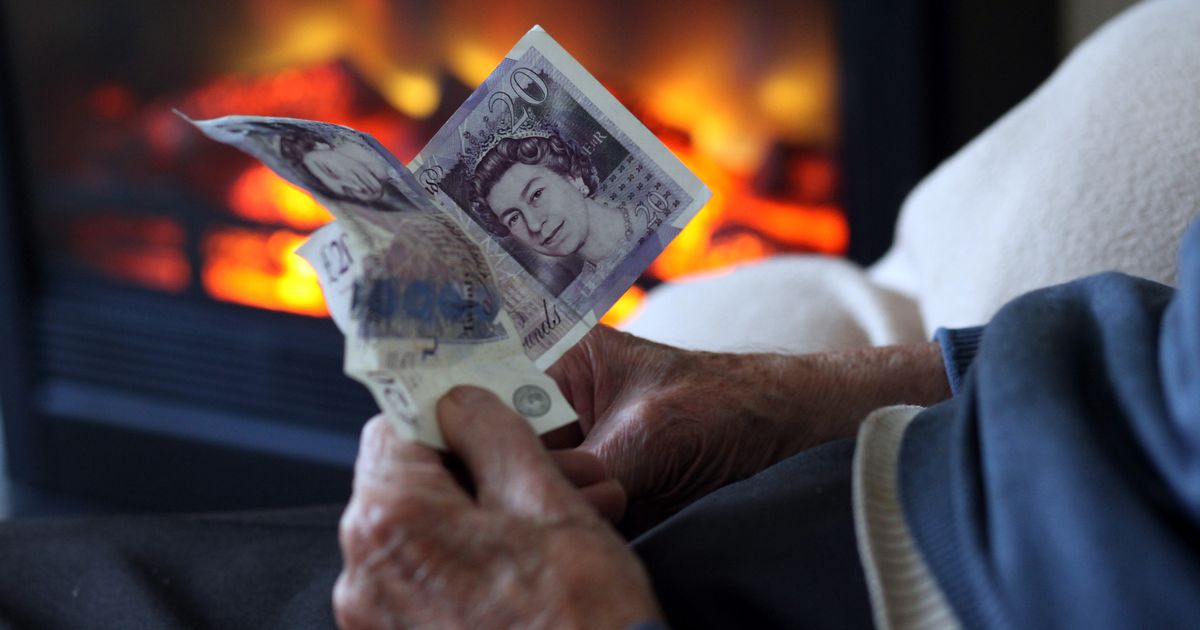
Income tax rises for Scots in April – how the changes affect you
Millions of people over State Pension age in England and Wales will receive up to £300 in Winter Fuel Payments from the Department for Work and Pensions (DWP) before the end of this year. Older people in Scotland will get up to £305 in Pension Age Winter Heating Payments from the Scottish Government.
While guidance on mygov.scot on eligibility and payment amounts by household circumstances for Scots have not yet been updated for winter 2025/26, it’s anticipated they will follow the same structure set out by the DWP. This means pensioners born before September 21, 1959 with an annual income of £35,000 or less will automatically qualify.
The UK Government estimates two million pensioners have an income above £35,000 and can either opt out of the payment, or repay it through PAYE or Self Assessment. However, tax expert Andy Wood at Tax Natives, explains some simple ways those with higher incomes can still qualify for this year’s Winter Fuel Payment.
READ MORE: £203 heating bill help for people in Scotland aged between 66 and 79 due before winterREAD MORE: Millions of people over State Pension age set to pay tax in retirement this year
The UK Government changed the eligibility rules last month, meaning more people will get the payment this winter. The U-turn follows last year’s means-testing of the Winter Fuel Payment, mainly restricting it to those receiving Pension Credit.
According to the latest figures from HM Revenue and Customs (HMRC) nine million pensioners in England and Wales will now receive the benefit this winter. Around 850,000 Scots will receive the Pension Age Winter Heating Payment.
The Winter Fuel Payment is worth £200 per household where occupants are aged between 66 and 79, or £300 per household where there is someone aged over 80. Payments will be issued automatically over November and December.
In Scotland, those aged 66-79 will receive £203.40 and those aged 80 and over will receive £305.10. The amounts are higher due to the annual uprating and will be issued on November 30.
However, if you’re worried you won’t qualify for either of these payments because your annual income is higher than the £35,000 threshold it might be worthwhile deciding now whether you should opt out of receiving the payment – which must be done by September 15 – or adopting smarter financial planning.
Andy Wood at Tax Natives said: “The UK Government only looks at your taxable income so there are some simple things you can do to reduce this, which means you can qualify for the Winter Fuel Payment as well as save tax.”
Move your savings and investments into ISAs
The £35,000 threshold will be based on an individual’s taxable income, rather than their total income.
This means one of the first things you should do is ensure you’re making the most of ISAs. Any interest you make from cash ISAs or income from stocks and shares ISAs does not count towards your taxable income.
In contrast, interest earned on non-ISA savings accounts, or taxable income from investments, will be included.
Andy explained: “Many pensioners may not realise that interest earned on savings held outside of ISAs count towards their total taxable income. With interest rates still relatively high, even modest savings can generate income that pushes someone over the threshold.”
Example
£20,000 in a savings account earning 4.5% would make £900 in interest for the year. While this falls within the personal savings allowance of £1,000 for basic-rate taxpayers and isn’t taxed, it’s still considered as ‘taxable income’ and counts toward the £35,000 Winter Fuel Payment limit.
Andy added: “ISAs offer a tax-free way to keep savings interest out of the income equation. Interest earned within an ISA is never taxed and does not count toward income calculations.
“With the £20,000 cash ISA allowance still available this tax year – and potential changes looming – they remain a smart choice for pensioners looking to protect their eligibility for benefits like the Winter Fuel Payment.”
He also explained that as well as any ISA income or gains being tax-free, you also won’t pay tax on withdrawals from an ISA, even if you cash in the full amount – so, you could cash in an ISA to supplement your retirement income, but it still won’t count towards the Winter Fuel Payment criteria.
Consider Premium Bonds if you’ve maxed out your ISA allowance
Andy said that if you’ve already used this year’s ISA allowance, and you have significant savings where the interest could cause you to breach the £35,000 taxable income limit, consider buying Premium Bonds.
Any Premium Bond prizes you may win are tax-free, so therefore aren’t part of your taxable income.
Take your pension tax-free cash, but beware of taking more
Andy explained that as well as ensuring you can enjoy the gains from your savings and investments without counting towards your taxable income, you should also have a look at your pensions.
Taking the 25 per cent tax-free cash from any workplace or personal pensions can give your retirement income a decent boost, and crucially it’s not taxable income.
However, any other money from pensions, such as via an annuity, income drawdown or a lump sum is taxable.
Andy suggests keeping an eye on your pension income and potentially combining pension and ISA income to keep you below the threshold.
Example
If you had previously been taking £30,000 from your pensions each year, and also receive £10,000 from the State Pension, that works out as £40,000 taxable income. However, if you reduced the £30,000 to £25,000 income from your pension, and topped up your income with £5,000 withdrawals from your ISA, then you would still have the same £40,000 total income, but only £35,000 would be taxable.
Andy added: “The criteria states you can receive the Winter Fuel Payment if your taxable income is at or below £35,000 a year. So, if it’s exactly £35,000, you will still qualify.
“If you are receiving an annuity, it isn’t possible to reduce this income, as it’s a guaranteed pension income for life. If you are taking lump sums from your pension pot(s), or have set up an income drawdown arrangement, you can reduce the amounts to avoid tipping over the £35,000 threshold.”
Think about deferring your State Pension
Andy said: “If you’ve followed the above steps, and you’ve worked out that claiming the State Pension will take your total taxable income above £35,000 and mean you don’t qualify for the Winter Fuel Payment, you could consider deferring your State Pension.
“You don’t need to do anything to defer it; you just don’t claim it once you reach State Pension age.”
He explained: “Deferring your State Pension is an option. However, it’s worth saying that deferring it means you will get a larger State Pension when you do come to claim it and this has the potential to push you up into higher tax bands or mean you no longer qualify for benefits you would have otherwise received.
“You also have to weigh up whether it’s worth losing out on a year’s worth of State Pension now in order to claim the Winter Fuel Payment plus a higher State Pension later.”
However, Andy warned that it’s important not to make any knee-jerk decisions. He added: “Delaying claiming your State Pension increases your payments by 5.8 per cent for each year you defer.
“However, you will be giving up approximately £12,000 of income a year at current rates, assuming you are entitled to the full New State Pension, so it will take some time to recoup that.”
Transfer income-generating assets to a spouse with less income
Another way to reduce your taxable income is to move assets to a spouse or partner whose income is below the £35,000 threshold.
Andy explained: “For a couple where one person has an income above £35,000 and one has an income of less than this amount, they will both get the Winter Fuel Payment (which is £100 each, or £150 if one person is over 80), but the higher earner will have to pay theirs back.
“If one of you has taxable income of £40,000 and the other has £20,000, by shifting £5,000 of income to the lower income partner, you can still enjoy £60,000 total household income together – and both keep the Winter Fuel Payment.”
Don’t worry about certain benefits adding to your income
Many benefits are not taxable, so you can enjoy receiving them without worrying they will contribute to the £35,000 limit.
Disability benefits including Attendance Allowance, Personal Independence Payment (PIP), Adult Disability Payment (ADP) and Disability Living Allowance (DLA) are not means-tested, or taxable.
However, some are, such as Carer’s Allowance, or the Carer’s Support Payment in Scotland, so remember to include the taxable ones when calculating if you’re at risk of losing the Winter Fuel Payment.
Give excess money to charity
Andy said one simple way of reducing your taxable income that is often overlooked is by making donations to charity.
He explained: “If you donate through Gift Aid, this means you can deduct the value of the donation, plus the basic rate of tax, which is currently 20 per cent, from your taxable income.
“If you’d been considering giving to charity through your will, making some of these donations now will help the charity faster, lower your taxable income and could mean you keep the Winter Fuel Payment.”
Eligibility for Winter Fuel Payments
You can get a Winter Fuel Payment if you were born before September 22, 1959 and live in England or Wales.
When you will not be eligible
You will not be eligible if you:
live outside England and Waleswere in hospital getting free treatment for the whole of the week of 15 to 21 September 2025 and the year before thatneed permission to enter the UK and your granted leave says that you cannot claim public fundswere in prison for the whole of the week of 15 to 21 September 2025Opting out of Winter Fuel Payment
You can choose to opt out of getting all future Winter Fuel Payments. To opt out you need to contact the Winter Fuel Payment Centre before September 15, 2025.
Full details on what you will need before contacting the Winter Fuel Payment Centre can be found on GOV.UK here.
 Get the latest Record Money news
Get the latest Record Money news
Join the conversation on our Money Saving Scotland Facebook group for money-saving tips, the latest State Pension and benefits news, energy bill advice and cost of living updates.
Sign up to our Record Money newsletter and get the top stories sent to your inbox daily from Monday to Friday with a special cost of living edition every Thursday – sign up here.
You can also follow us on X (formerly Twitter) @Recordmoney_ for regular updates throughout the day or get money news alerts on your phone by joining our Daily Record Money WhatsApp community.
